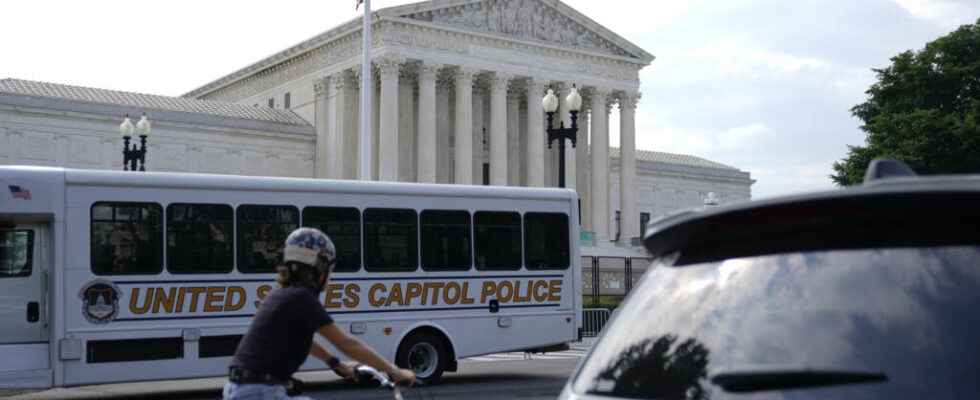The highest American court examines, this Tuesday, February 21, a case which involves YouTube and its parent company Google. It could change the face of social media.
In the United States, this is called “Section 230”. Since 1996, this legislative provision has exempted internet platforms from responsibility for monitoring the content they publish, unlike traditional media. At the time, it was a question of helping to develop a sector that was still in its infancy while encouraging moderation. But algorithms today are accused of promoting online hate and extremely disturbing content.
On both the right and the left, Section 230 is criticized by politicians and they want to reform it. But the fracturing of the political landscape and in particular the banishment of Donald Trump and the accusations of censorship by the far right since January 6, 2021 have prevented any form of consensus, reports our correspondent in Washington, Guillaume Naudin.
Google accused of promoting jihadist content
It is therefore the Supreme Court that could take care of it. She examines the complaint of the relatives of Nohemi Gonzalez, killed in the attacks of November 2015 in Paris. The young American, a student in France, had been killed at the La Belle Team bar by a commando from the Islamic State (IS) group. His parents accuse YouTube, a subsidiary of the Californian giant Google, of having recommended videos of the jihadist group to some of its users. According to them, ” by recommending ISIS videos to its users, Google helped ISIS spread its messages and thus provided it with material support “.
The courts have so far dismissed their complaint in the name of “Section 230”, but the Court wants to hear each other’s arguments, before rendering a decision before the end of its session in June. By agreeing to take it up, while dismissing the vast majority of cases submitted to it, the high court has hinted that it was ready to change case law.
Cold sweats in the tech world
This prospect is causing cold sweats in the world of “tech”. ” Algorithm-provided recommendations help find pins in humanity’s biggest haystack “, Google wrote to the Court, asking him “ not to weaken a central piece of the modern internet “.
Allows to ” pursue platforms for recommendations (…) expose them to complaints for third-party content absolutely all the time added Meta, in a separate pitch. For them, the recommendations are just used to bring order, to organize the content posted online, but are still not editing work.
On Wednesday, the Temple of American Law will continue its reflection in a very similar file, but which poses a different legal question: if “section 230” did not exist, could the platforms be condemned under anti-terrorism laws, even if they did not provide direct support for an attack? The Court must render both decisions before June 30. In the past, several of its judges have expressed their desire to change the reading of “section 230”, which is increasingly contested in the political arena even if partisan divisions prevent any legislative development.
(With AFP)
